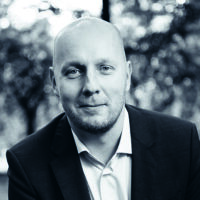
Doctorates in three years – how?
The first people selected for the doctoral education pilot are starting this autumn.
texti terhi hautamäki images istock english translation marko saajanaho
The doctoral education pilot is an expansion to researcher education, implemented from 2024–2027 and involving one thousand new doctoral researchers being hired by universities in three-year fixed-term employment positions on a total budget of 255 million euros.
The goal is to increase the number of doctors in Finland, encourage doctoral graduates towards diverse careers, and develop doctoral education. This is based on outlines from the parliamentary RDI working group and the government programme. Doctoral researchers are placed in fifteen pilots spanning different fields, which are implemented through university consortiums. The University of Helsinki is involved in eleven.
The University of Helsinki chose 171 doctoral researchers this summer. The supplementary application process in August and September adds 64 more. How are the recruitments coming along, University of Helsinki Doctoral School Director Minna Palander-Collin?
This spring, we received over 1,300 application and started the qualification process. Each consortium had their own pool of reviewers looking over each application according to strict review guidelines. We also had an aptitude test courtesy of a commercial company, but results from this test ended up not being used in the review process.
How does the pilot differ from other doctoral education?
Each of the consortiums have devised their own plans. Here at the Doctoral School, we have considered, for example, base camp events to concisely teach working life skills and group doctoral researchers,

We are supposed to achieve the same education as always: high quality, in-depth familiarisation with conducting research. The time pressure requires careful planning and support. I am hoping for realistic projects with careful planning from the start to consider what can be done in this timeframe. Currently, doctoral thesis work is not always this methodical. Research may get sidetracked, prolonging work time.
The goal is to encourage doctors to embark on careers in different sectors of society. What does this mean in practice?
It may mean internships at businesses, but it remains to be seen how much of this can be accomplished in three years. There may be company visits. Funding models have been considered – if useful research for a company is created, could that company perhaps hire the researcher in the fourth year and get access to their research results that way.
Doctoral graduates are already finding employment quite effectively. Of course, experience during doctoral thesis work is something we are considering even more, and we also try to create connections. Many primarily wish for university placement, and there is nothing wrong with that. Universities need doctoral graduates. The problem is the lack of alternative options, with highly educated doctoral graduates not going out to the world to do different things.
Is it possible for the university to offer paid extra time if three years are not sufficient?
No such thing has been promised. At this stage, our absolute focus is to have a finished product in three years.
The largest pilot is iCANDOC, focused on precision cancer medicine. Doctoral researcher Susanna Holmström, chosen for the pilot, how did you end up on a research career?
I have studied bioinformation technology at Aalto. I was already interested in medicine and biology when I applied to university. However, I did not want to study medicine as I was more interested in the tech side. I conduct cancer research to develop tools for analysing data obtained from patients. Our research group investigates why cancer develops a resistance to medication and regenerates.

I already did my bachelor’s thesis in the same group and have worked part-time in it since then. When I heard about the pilot, I thought it sounded interesting and of course decided to apply. I have plenty to learn about the field, and cancer research is important. I believe a doctorate will help me find employment in the future.
What are your thoughts on the duration of the pilot?
I have been working on the project part-time for many years and already published one article with another on the way. I have made it quite far at the work comprising my doctoral thesis. But if you are starting from nothing, three years is a short time.
What are your expectations for when work commences?
The info suggests the pilot programme is trying to create a sense of community, so that you actually learn to know people and make contacts. That is nice, because in the future we will probably be working in the same field.
iCANDOC involves five universities, the HUS, wellbeing services counties, and representatives from the pharmaceutical industry. University of Helsinki Professor Tomi Mäkelä, what kind of objectives does the doctoral education pilot have?
We monitor progress in a noticeably more tangible way than in current doctoral education. It is recommended to do work practice at a hospital or pharmaceutical company, which may be a potential employer in the future and, ideally, a scientific cooperation partner.
Precision cancer science involves a great deal of working with patients. The expectation is for some doctoral researchers to transition into careers in public health services and others into companies.
Some fantastic projects are about to get underway. Many doctoral researchers are involved with projects led by veterans, but projects from younger researchers and academic researchers are also included. The funding does not just go towards the doctoral researchers’ wages, but it also supports guidance activity at universities.
How does the three-year timeframe affect research?
At the School of Medicine, there have been good and serious conversations about how to make a three-year doctoral thesis possible. The thesis itself and following publications can go beyond three years. If the monitoring group determines at the two-and-a-half-year mark that the researcher is unable to graduate in time, a short period of extra time can be added. There is an agreement with university management that those specialising as medical doctors can work on their doctoral thesis research part-time, lengthening the time period.
In a medicine development project, a researcher could spend part of their time in a company and part of it at the university, allowing them to conduct the same research in both places without their work practice increasing the timeframe..
Will the importance of the doctoral thesis be reduced?
That is inevitable. We have not been slacking off here to begin with. The bigger the time crunch, the more quality suffers as a result.
That much is obvious, and it is a definite concern. I have said that in order to avoid weakening Finland’s scientific contribution, there should be a clear postdoc programme to follow the pilot so we can ensure every trainee remains globally competitive.

